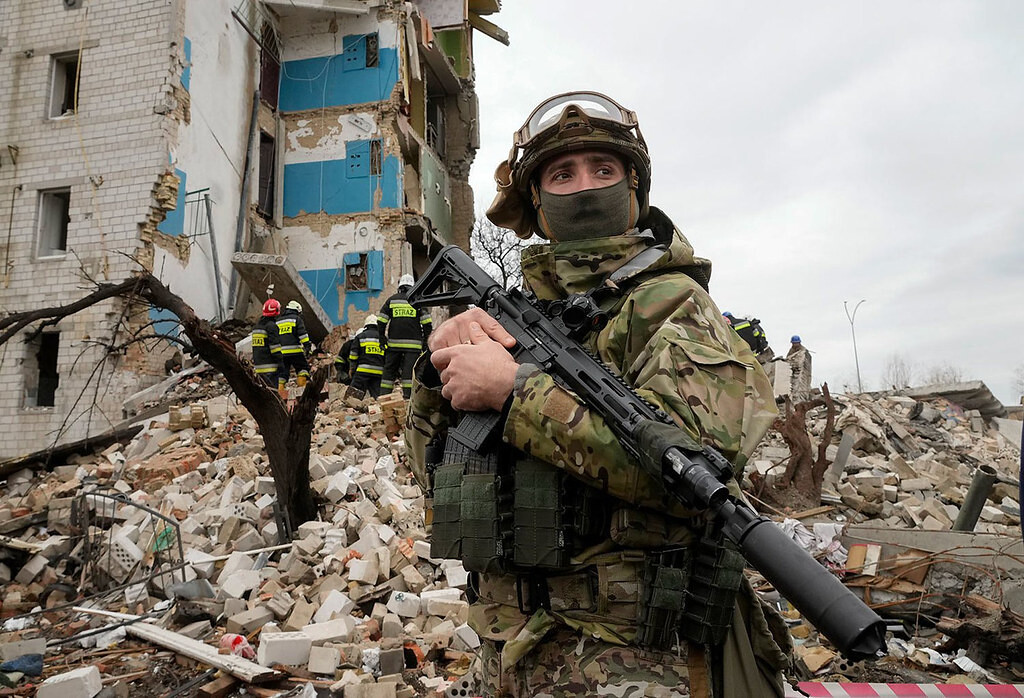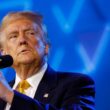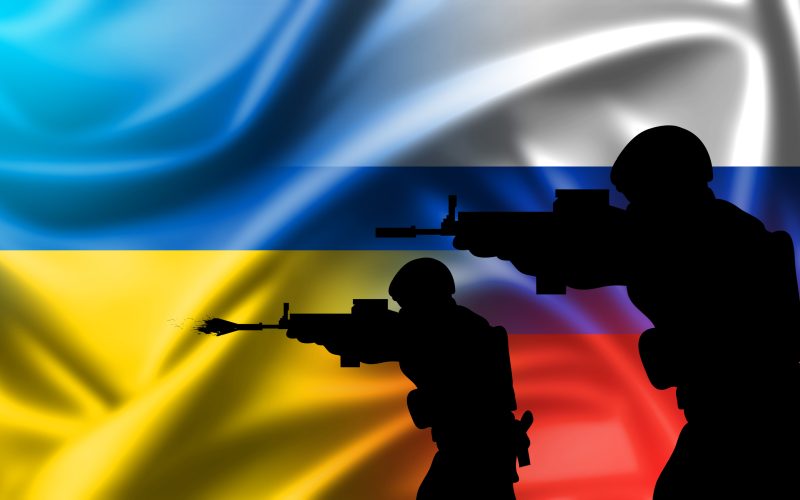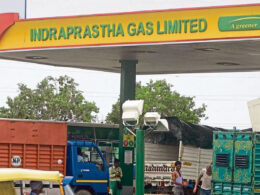After more than two and a half years of intense fighting, the Russia-Ukraine conflict shows no signs of winding down. Ukrainian President Volodymyr Zelenskyy recently made headlines with a bold statement that has left the West reeling and Russia furious. Speaking at the European Council summit in Brussels on October 17, Zelenskyy declared that Ukraine’s future security could only be guaranteed in two ways: by joining the North Atlantic Treaty Organisation (NATO) or being provided with nuclear weapons.
Zelenskyy’s reference to nuclear arms brings back memories of Ukraine’s decision to give up its Soviet-era nuclear arsenal in 1994, in exchange for security assurances from Russia, the United States, and the United Kingdom under the Budapest Memorandum. At the time of the Soviet Union’s collapse in 1991, Ukraine had inherited the world’s third-largest nuclear arsenal. Three years later, it relinquished these weapons for a promise of protection.
Zelenskyy reflected on this, stating, “Who gave up nuclear weapons? All of them? No. Ukraine. Who is fighting today? Ukraine.” He emphasized that Ukraine now needs concrete security guarantees, either in the form of nuclear deterrence or an alliance like NATO. “NATO countries are not at war. People are all alive in NATO countries. And thank God. That is why we choose NATO, not nuclear weapons,” he said during his address.
However, in a press conference with the newly-appointed NATO Secretary-General Mark Rutte, Zelenskyy clarified his remarks, explaining that Ukraine was not seeking to build nuclear weapons. “What I meant is that today there is no stronger security guarantee for us besides NATO membership.” While Rutte expressed support for Ukraine’s ambitions and called the membership path “irreversible,” he stopped short of offering a specific timeline for Ukraine’s accession.
Zelenskyy’s frustrations are not without cause, as Ukraine’s path to NATO membership requires the approval of all 32 member states. But political roadblocks remain—Slovak Prime Minister Robert Fico and Hungary’s Viktor Orbán, both of whom have taken pro-Russian stances, have openly voiced their opposition to Ukraine’s NATO membership, with Orbán calling the proposal “more than frightening.”

Putin’s Response, “Dangerous Provocation”
On the other side of the conflict, Russian President Vladimir Putin wasted no time responding to Zelenskyy’s remarks, labeling them as a “dangerous provocation.” Speaking at a press briefing with BRICS journalists, Putin warned that any Ukrainian pursuit of nuclear weapons would be met with severe consequences. “It is not difficult to create nuclear weapons in the modern world,” Putin stated. “I do not know whether Ukraine is capable of doing it now, but in general, there is no great difficulty here.”
The Russian president reaffirmed his resolve to prevent Ukraine from acquiring any weapons of mass destruction. “Russia will not allow this under any circumstances,” he said. Putin made it clear that Russia’s victory over Ukraine is a priority, and that preventing Ukraine from joining NATO is a non-negotiable demand. “Any step in this direction will be met with a corresponding reaction,” he warned, referring to the possibility of Ukraine reigniting a nuclear program.
Putin remains steadfast in his aim for complete victory, stating that the Russian army is becoming not only one of the most technologically advanced but also the most battle-ready. “When NATO members get tired of fighting us, we will remain ready to continue this fight. And victory will be ours,” he said.
Despite these words, Putin also mentioned that Russia is open to ending the conflict, but only under conditions set during the Istanbul negotiations of March 2022, which collapsed following the discovery of the Bucha massacre by Ukrainian forces.
Looking ahead, Putin hopes to rally support for his position at the upcoming BRICS meeting in Kazan, Russia, from October 22-24. The event will see participation from UN Secretary-General António Guterres and 24 countries, including BRICS members Brazil, Russia, India, China, South Africa, and others like Egypt, Iran, and the UAE.
Ukraine’s Major Problem, Army Desertions on the Rise Amid Ongoing War
As the war between Ukraine and Russia drags into its third year, a troubling issue is surfacing within Ukraine’s military ranks — desertion. Reports indicate that at least 80,000 Ukrainian soldiers have deserted their units since the war began, with more than half of these desertions occurring in the first eight months of 2024 alone.
According to leaked data from the Prosecutor General’s Office, a staggering 45,543 soldiers deserted between January and August 2024. This figure accounts for over half of the 81,167 desertion cases registered since 2022. Some military personnel claim that the real number could be as high as 100,000, representing roughly 10% of the Ukrainian armed forces.
Ukrainian authorities have made a distinction between two categories: voluntary demobilization and desertion. The majority — about 66% of these cases — fall under voluntary demobilization. These are soldiers who, after being granted leave, fail to return to their units, often citing personal obligations, poor conditions in their units, or issues with their enlistment documents. Desertion, on the other hand, refers to soldiers who vanish without explanation and never return. Both actions are considered crimes and are punishable by five to 10 years in prison.
The problem has grown so severe that on August 20, the Ukrainian parliament passed a law allowing soldiers who have gone missing without leave to return to service without penalty, provided it’s their first offense and they respond to a warning. Parliamentary deputy Fedir Venislavskyi admitted in a radio interview that the issue is widespread, adding, “The situation is very difficult; we cannot pretend it does not happen.” He also mentioned that the government had been in constant discussions with the General Staff and the Defense Ministry to find solutions.
A Growing Crisis of Motivation?
The desertion issue is complex and speaks to a deeper problem within the Ukrainian army. Civilians who enlisted at the start of the war are now eager to return to their regular lives, and new recruits are often unmotivated by the bleak outlook on the battlefield. Morale hit a low in April 2024 when a new mobilization law came into effect, disappointing hundreds of thousands of volunteer fighters from 2022 who had hoped to be demobilized after three years of service. Both the government and the General Staff, however, made it clear that demobilization was not an option due to Ukraine’s critical need for experienced soldiers.
Compounding the issue is the Kremlin’s advantage in terms of manpower and its more extreme recruitment tactics. Russia, with a larger population to draw upon, has also been ruthless in discouraging desertion. There are testimonies from Russian soldiers, as well as footage from Ukrainian drones, showing that summary executions of deserters are not uncommon on the Russian side.
Ukraine, meanwhile, faces significant shortages of weapons, ammunition, and other military resources, making it even harder for soldiers to remain motivated. In a high-profile incident on October 3, soldiers from the 123rd Brigade of the Territorial Defense Forces abandoned their posts on the Donetsk front in protest. Their complaints centered on the lack of proper training for new recruits and an acute shortage of ammunition, making it impossible to hold off advancing Russian forces.

North Korea’s Growing Alliance with Russia, A Global Concern
Adding more fire, On Friday, South Korea raised alarms about a significant new threat—North Korea has reportedly sent troops to Russia to support its war efforts in Ukraine. This marks a dangerous escalation in global security, and South Korea has vowed to respond with every available means, according to a statement from the presidential office.
Seoul’s intelligence agency, the National Intelligence Service (NIS), revealed that North Korea plans to deploy up to 12,000 soldiers to assist Moscow. Already, 1,500 elite special forces from North Korea’s “Storm Corps” are said to be stationed in Russia’s Far East, undergoing acclimatization training before being sent to the front lines in Ukraine.
First Deployment of North Korean Troops
Between October 8 and 13, satellite images showed Russian military vessels transporting the first batch of North Korean special forces to Vladivostok. These soldiers are part of a unit within North Korea’s Special Operations Forces, known for their elite training. Once they complete their training, they are expected to be deployed to the battlefields in Ukraine.
According to the NIS, these troops have been equipped with Russian military uniforms and weapons, possibly to disguise their North Korean origins and make them appear as Russian soldiers. The intelligence agency believes that additional troop deployments will follow soon, estimating that around 12,000 North Korean soldiers could be involved in total.
Moreover, the NIS reported that since August, North Korea has supplied Russia with over 13,000 containers of military supplies, including artillery shells, missiles, and anti-tank rockets.
NATO’s Response and Global Reactions
While these reports have caused concern globally, NATO Secretary-General Mark Rutte stated that the alliance could not yet confirm the presence of North Korean soldiers in Ukraine. “At this moment, our official position is that we cannot confirm reports that North Koreans are actively engaged as soldiers in the war effort,” Rutte told reporters. However, he also added that this situation could change as more intelligence comes in.
China, meanwhile, urged all parties to work towards de-escalation and focus on political solutions to the conflict. This statement highlights Beijing’s cautious approach as tensions rise over North Korea’s involvement in the Russia-Ukraine war.
Historic Ties Between North Korea and Russia
North Korea and Russia have shared a close relationship since North Korea’s founding after World War II. This partnership has only strengthened since Russia’s invasion of Ukraine in 2022. Pyongyang has been accused by both Seoul and Washington of supplying weapons to Russia for use in the war. In June, Russian President Vladimir Putin visited North Korea, where the two nations signed a mutual defense treaty, further fueling speculation about arms transfers that violate UN sanctions on both countries.
Why Is North Korea Sending Troops?
Experts believe that North Korea’s involvement in the war extends beyond just military support to Russia—it’s also about gaining experience. “For North Korea, which has supplied Russia with many shells and missiles, it’s crucial to learn how to handle different weapons and gain real-world combat experience,” said Lim Eul-chul, a professor at Seoul’s Institute for Far Eastern Studies. This could explain why North Korea is now shifting from simply supplying weapons to actively sending soldiers.
This isn’t the first time North Korea has provided military support to foreign nations. During the Vietnam War, North Korean fighter pilots were sent to assist North Vietnam. Similarly, North Korea sent pilots to support Egypt during the Yom Kippur War, and has previously dispatched military advisors to nations like Libya, Uganda, and the Democratic Republic of the Congo. However, this is the first instance of North Korea deploying a large-scale ground force to a foreign nation.

Snapshot
What’s Next?
The reported deployment of North Korean troops marks a troubling new phase in the ongoing Russia-Ukraine war. As tensions mount and the global community closely monitors these developments, the involvement of North Korean forces could further complicate an already volatile situation. How this alliance between Russia and North Korea will impact the broader conflict remains to be seen, but one thing is certain—the international community is watching closely.
The Difficult Path to Victory?
Ukrainian President Volodymyr Zelenskyy has acknowledged the low morale within the armed forces and addressed these concerns during recent trips to the United States and Europe. He laid out a plan for victory, expressing optimism that the war could be concluded by 2025. While his words offer some hope, the reality on the ground remains daunting, with thousands of soldiers disillusioned by the ongoing conflict and a seemingly endless need for manpower.
Ukraine’s challenge is not only on the battlefield but also within its own ranks. As the war continues, finding ways to motivate and retain soldiers will be key to the country’s ability to withstand Russian advances. The issue of desertion adds a new layer of complexity to a war that shows no signs of letting up soon.
With tensions between Russia and Ukraine continuing to escalate and the world watching nervously, the stakes have never been higher.
Will Ukraine secure its future through NATO membership, or will the ongoing conflict take an even more dangerous turn? Only time will tell.









